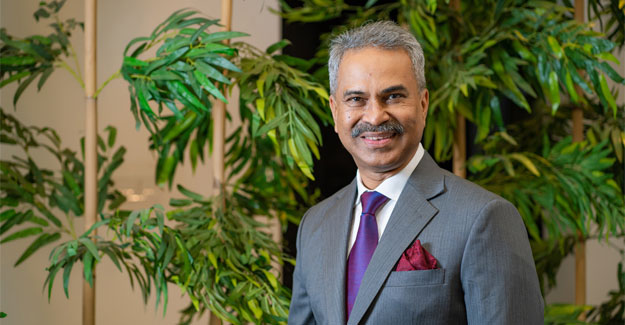
Virtual Marketplace: Big Opportunity Awaits RMG
An increasing number of readymade garment (RMG) factories in Bangladesh are embracing digitisation and automation in the manufacturing process to increase productivity, reduce costs, lead time, etc., which are prerequisites to stay competitive in the global sourcing supply chain. But it is an irony that Bangladesh, feted as the world's second largest apparel exporter, is yet to develop a virtual marketplace to showcase its products, and connect global buyers and consumers with local manufacturers. In absence of such a common platform, apparel manufacturers are solely dependent on a traditional brick and mortar system; that too in a time when we as a country boast of building "Digital Bangladesh". The internet has significantly changed our lives as well as businesses. Covid-19 accelerated the pace of digital transformation, leading to a boom in the digital and e-commerce sectors. And this transition is here to stay. And as digitalisation reaches entire populations, one can only imagine the size of e-commerce. In the US, online sales accounted for 46% of its total apparel sales in 2020. Gap reported that in the second quarter of 2021, their online sales grew by 65% and now represents 33% of its total revenue. Inditex reported that online sales now account for 77% of their total sales and throughout 2020, online visits to the brand reached 5.3 billion, up 50% compared to the previous year. Zalando reported 32-34% growth in its gross merchandise value during the second quarter of 2020. UK retailer Boohoo claimed a 45% increase in revenue across all of its (primarily online) fashion brands during the same period. Myntra, an Indian fashion marketplace, saw a record 19 million visitors on its website just on the first day of its annual sales festival in 2021. Therefore, it would not be an exaggeration to say that online sales helped the fashion industry stay afloat during the devastating period of Covid-19 and will determine the sector's future growth momentum. Thanks to the mass vaccination programme, normalcy has returned across much of the world. Interestingly though, a portion of consumers have become so accustomed to the "new normal" that they still favour shopping online rather than physically visiting the stores. Fashion is the largest business-to-consumer e-commerce market segment with a global value of US$ 664.5 billion which is projected to reach US$ 1003.5 billion by the end of 2025. Bangladesh being the second largest apparel exporter in the world has huge untapped potential here. QIMA ranked us second in ethical manufacturing while the US Green Building Council bestowed us with the Global Leadership Award. However, it is regretful that in all these years we have failed to create our own brand story. The virtual marketplace can finally open up an opportunity for us to shift from custom makers to make our mark on the global stage. The virtual marketplace can also be a gateway for local small-and medium enterprises (SMEs) to go global. Now, there are two alternatives for Bangladesh to enter the virtual marketplace. Individual factories can sell their products through already existing platforms like Amazon, Walmart and e-bay or we can develop our own marketplace with further developments and features. The operating procedure can also follow two modalities: business-to-business or business-to-consumer. Either way, the website has to be updated and upgraded with an assortment of features of our own design. In order to smoothly run the operation, modifications in our existing Bangladesh Bank, National Board of Revenue, Export Promotion Bureau, and other policies is a must. Besides, some issues regarding discrepancies in documents. For example, when shop owners offer discounts, reject goods, issue bonds, regulate foreign exchange and most importantly, manage warehouses for faster delivery, all relevant documents have to be cross-checked with the country's laws to ensure compliance. We have to work on branding and marketing so that we can make our venture into the virtual marketplace a success. If we enter Amazon or e-bay, we have to keep in mind that we will be competing against brands like H&M, Zara, M&S, Ck, GAP and other famous global brands. Although this may sound like an uphill task, it is not impossible. (Faruque Hassan is President, BGMEA)
Textile Excellence
If you wish to Subscribe to Textile Excellence Print Edition, kindly fill in the below form and we shall get back to you with details.








